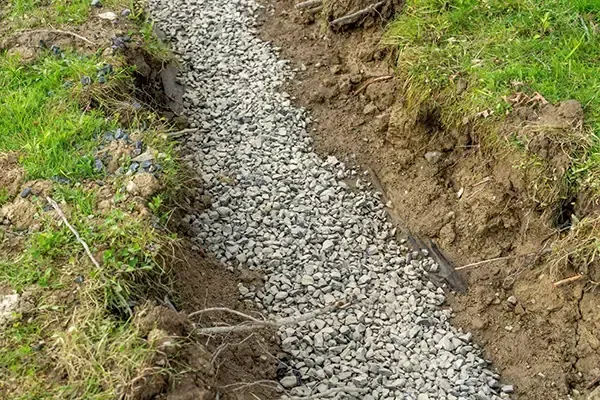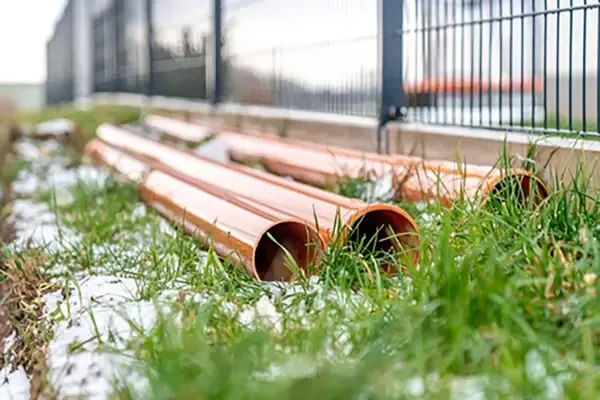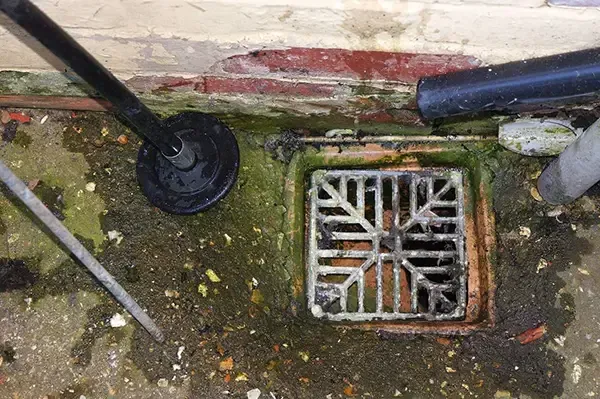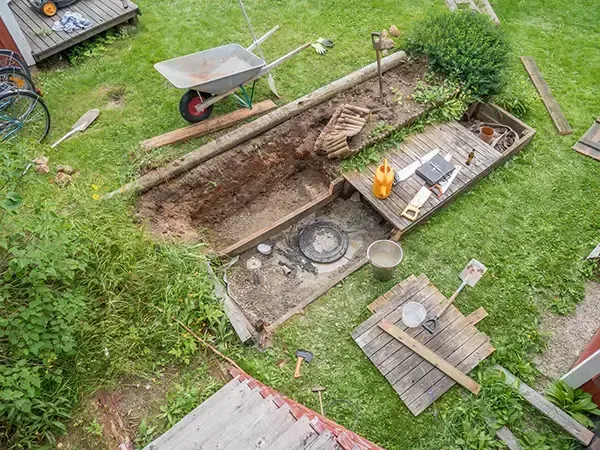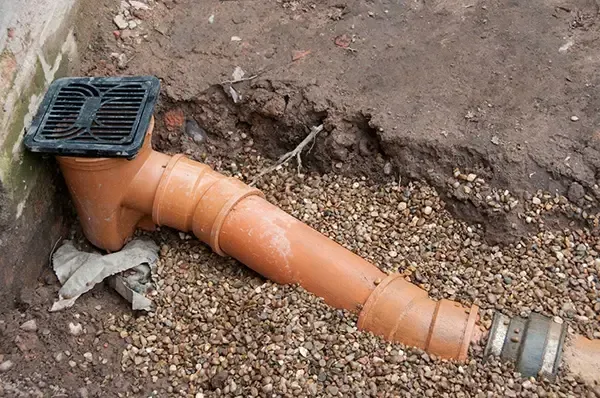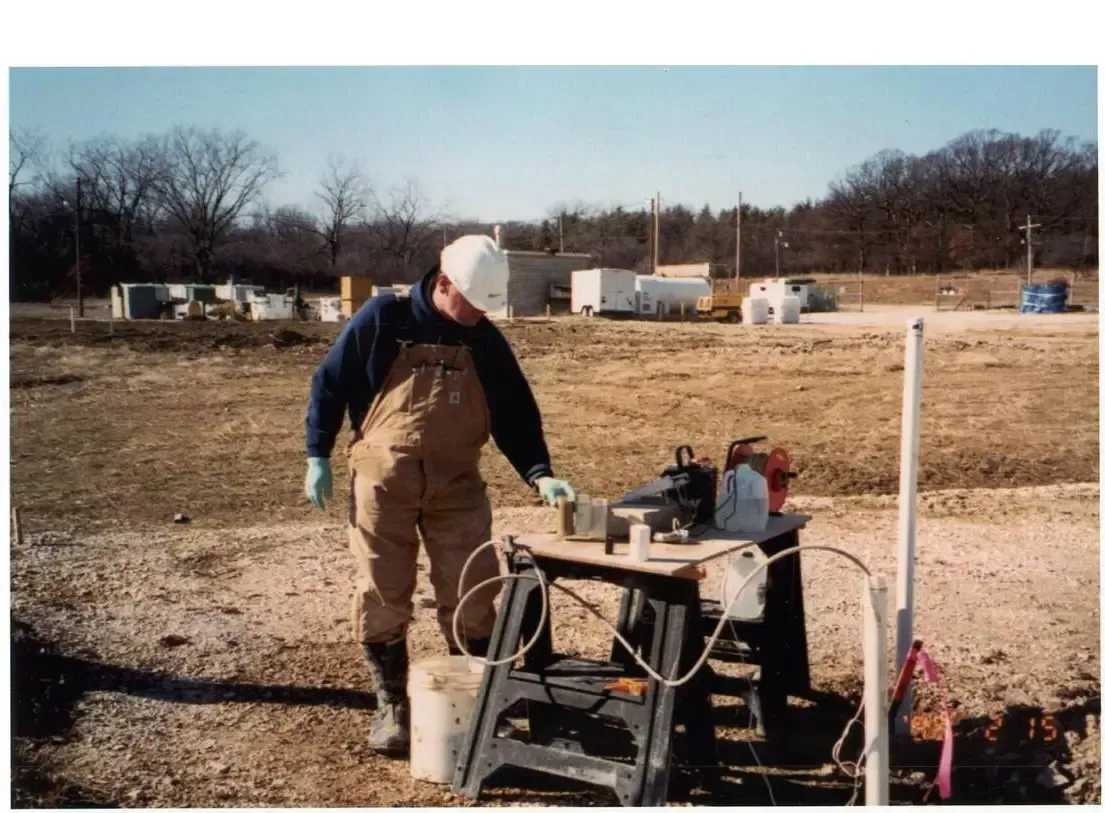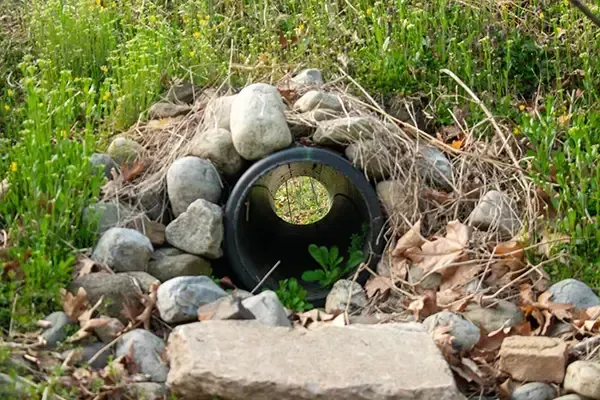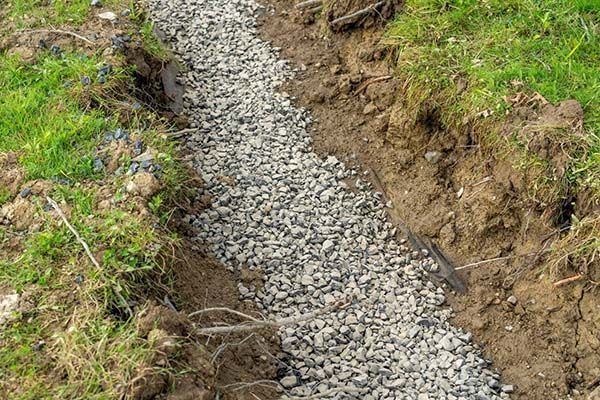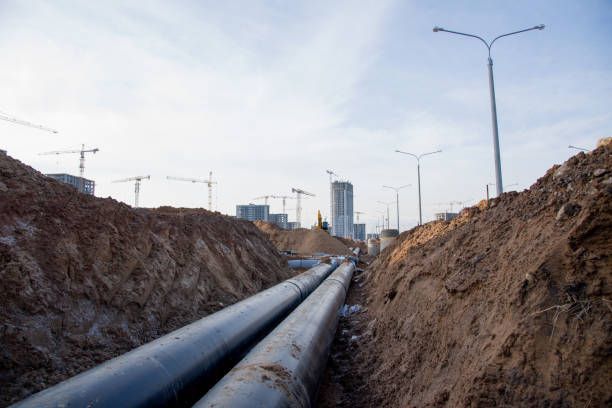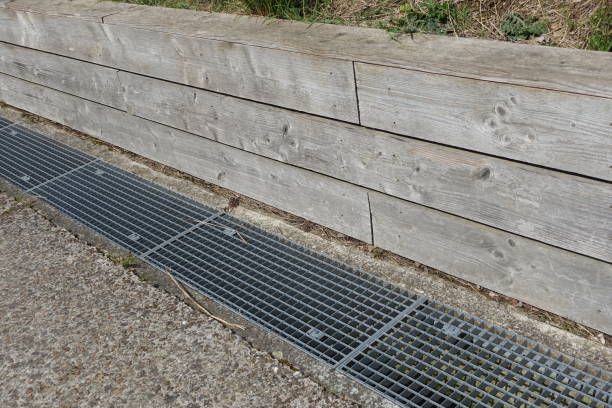How does a French drain compare to other drainage systems?
When you're considering drainage solutions for your property, it's essential to understand how a French drain stacks up against other systems.
Unlike surface drains that can easily become clogged or sump pumps that need electricity, French drains operate passively, using gravity to redirect water away from your foundation.
This efficiency and low maintenance can make them an attractive option for homeowners facing water issues.
But what about their adaptability and long-term performance compared to alternatives? The answer might surprise you.
Overview of French Drains
A French drain is a highly effective subsurface drainage system designed to manage water flow around your property and prevent water damage.
How French Drains Work:
- Trench System: A French drain consists of a trench filled with gravel or rock, which collects and redirects water away from your property.
- Perforated Pipe: A perforated pipe is installed within the gravel bed, allowing water to enter the system and flow through the pipe.
- Water Diversion: The collected water is then directed away from your property through a suitable outlet, such as a storm drain or a dry well.
Applications:
- Effective in Various Conditions: French drains are effective in areas with high rainfall, poor soil drainage, and a high water table.
- Versatile Installation: Can be installed both inside (e.g., around the foundation) and outside your home.
Key Benefits:
- Protects Against Water Damage: Prevents water accumulation, flooding, and the associated risks of foundation damage and mold growth.
- Improves Property Aesthetics: Creates a drier and more usable outdoor space by eliminating standing water and preventing soil erosion.
- Provides Peace of Mind: Offers long-term protection against water-related issues.
By understanding the principles of French drain operation, you can make informed decisions regarding water management and protect your property from the potential damage caused by excess moisture.
Comparing French Drains to Other Drainage Systems
Effective drainage is crucial for maintaining a healthy and safe environment around your home.
When considering drainage solutions, it's important to compare French drains to other options to determine the best fit for your specific needs.
French Drains vs. Other Drainage Systems
- Surface Drains:
- Collect water from the ground surface.
- Suitable for flat areas where water tends to pool.
- Can become easily clogged with debris, requiring frequent maintenance.
- May not be as effective as French drains in handling large volumes of water.
- Channel Drains:
- Designed to collect and direct water along driveways, patios, and walkways.
- May not be as effective as French drains in managing groundwater and preventing foundation issues.
- Sump Pumps:
- Actively remove water from basements or crawl spaces.
- Rely on electricity, making them vulnerable during power outages.
- May not be as effective in preventing water accumulation around the foundation.
French drains offer several key advantages:
- Passive Drainage: Utilize gravity to effectively move water away from the foundation, minimizing the risk of foundation issues.
- Reduced Maintenance: Generally require less maintenance compared to surface drains, which are prone to clogging.
- Effective Groundwater Management: Effectively manage groundwater levels, reducing the risk of basement flooding and soil erosion.
By carefully comparing these drainage options and considering your specific property needs and budget, you can select the most effective and cost-efficient solution for your home.
Choosing the Right Drainage Solution
Selecting the appropriate drainage solution for your property requires careful consideration of various factors.
Factors to Consider:
- Soil Type and Landscape: Assess soil type, landscape slope, and areas prone to water accumulation.
- Severity of Water Issues: Determine the severity of water drainage problems, such as the frequency and volume of water accumulation.
- Property Size and Layout: Consider the size of your property and the layout of structures, driveways, and walkways.
- Budget and Maintenance Considerations: Evaluate the initial installation costs and ongoing maintenance requirements for each option.
Comparing Drainage Solutions:
- French Drains: Ideal for managing groundwater and preventing foundation issues.
- Surface Drains: Effective for collecting surface water in flat areas.
- Channel Drains: Suitable for managing runoff along driveways and walkways.
- Sump Pumps: Effective for removing water from basements and crawl spaces, but rely on electricity.
Professional Consultation:
- Consult with a qualified drainage professional to assess your specific needs and recommend the most suitable and cost-effective drainage solution for your property.
By carefully considering these factors and seeking professional guidance, you can make an informed decision and select the best drainage solution to protect your property and enhance its value.
Choosing the right drainage system is essential for protecting your property and ensuring long-term water management.
French drains stand out as a versatile, low-maintenance solution that effectively addresses groundwater issues and prevents foundation damage.
While surface drains, channel drains, and sump pumps each have their advantages, understanding your property's unique needs and consulting a professional can help you determine the best fit.
By investing in the appropriate drainage system, you can safeguard your home, enhance its usability, and increase its value over time.
